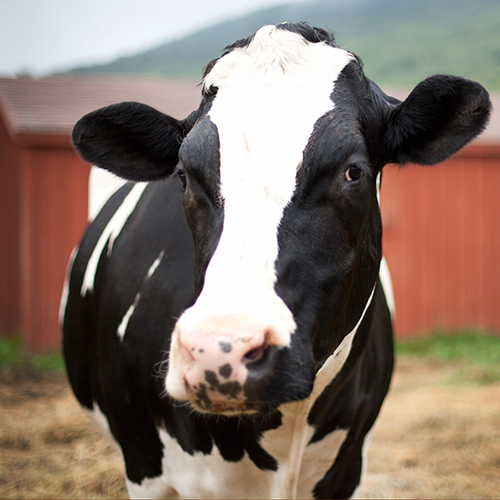Dairy industry in downward spiral
While milk consumption declines with each generation — it’s down 37 percent since the 1970s and keeps dropping — demand for plant-based milks is on the rise. In fact, the market for dairy-free foods is projected to reach $20 billion by 2020.
This growing demand isn’t going unnoticed by the industry. On a positive note, industry news site The Dairy Reporter recently listed Daiya’s vegan cheese slices as the top new product “in the dairy aisle” in June.
But as plant-based options fly off the shelves, some animal agriculture marketers are showing their fear by taking aim at the consumers’ most popular plant-based choice: Almond milk.
The Atlantic reports that, as part of its new $50 million “Milk Life” campaign (which replaces outdated “Got Milk?” ads), the industry aims to create skepticism about plant-based options by questioning the ingredients of almond milk. Given the facts, however, it seems unlikely that such tactics will succeed. Cows raised on factory farms are pumped full of drugs and constantly impregnated in order to produce unnaturally large amounts of milk. Their swollen udders are hooked up to milking machines, and blood or pus can wind up in cow milk that’s still packaged and sold.
Many people seem to agree that what you’ll find in a carton of almond milk is a safer bet. A Nielson consumer report says, “Almond milk is now America’s favorite milk substitute, boasting sales growth of 250% over the past five years. During that same period, however, the total milk market shrunk by more than $1 billion.”
A wide variety of plant-based milks are readily available and healthier for you — and for animals. Choose from almond, soy, hemp, coconut, rice milks and more, and they’re often found right alongside their dairy counterparts.
Non-dairy milk alternatives are also showing up in major coffee chains like Dunkin’, Tim Horton’s and Starbucks.
It’s easier than ever before to choose dairy-free. Get started with recipes, product tips, blog posts and more at TryVeg.com.

Infographic: Factory Farming Awareness Coalition

